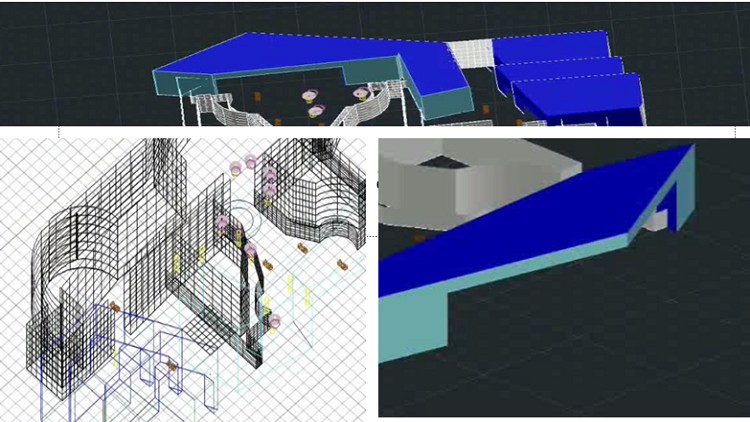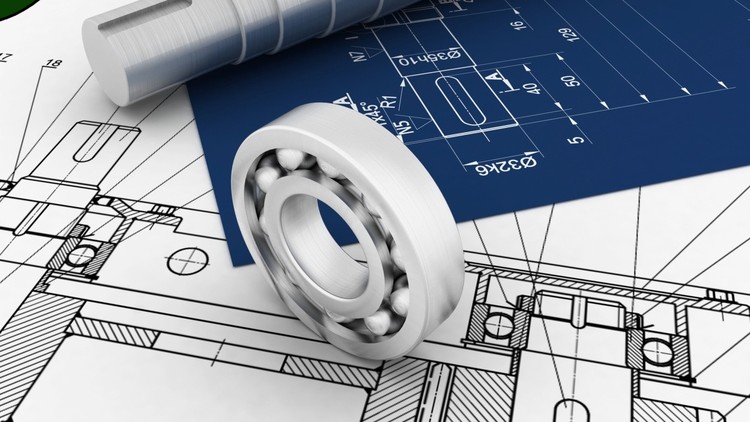Description
This course focuses on the key aspects of structural design within the field of civil engineering. You’ll learn about the principles of designing and analyzing structures such as buildings, bridges, and towers, with an emphasis on safety, stability, and material selection. The course covers essential concepts like load-bearing capacity, stress and strain, and the properties of construction materials such as steel, concrete, and wood. You’ll also explore the design standards and codes that govern structural engineering, ensuring that structures are both functional and safe. Through practical examples, case studies, and hands-on projects, you’ll develop the skills necessary to design reliable and efficient structures. This course is perfect for students and professionals looking to deepen their understanding of structural engineering.
Welcome to “Civil Engineering: Structural Design”! This course provides a comprehensive introduction to the principles and practices of structural design in civil engineering. You will learn how to analyze, design, and evaluate structures to ensure they are safe, efficient, and sustainable.
Syllabus
Week 1: Introduction to Structural Engineering
- Overview of the course and key concepts in structural design
- The role of structural engineers in civil engineering projects
Week 2: Fundamental Principles of Structural Design
- Understanding loads, forces, and equilibrium
- Basic structural analysis concepts
Week 3: Properties of Construction Materials
- Overview of common materials: concrete, steel, timber
- Mechanical properties and material selection criteria
Week 4: Types of Structural Systems
- Introduction to beams, columns, frames, trusses, and bridges
- Advantages and limitations of different structural forms
Week 5: Load Types and Load Combinations
- Understanding dead loads, live loads, environmental loads (wind, seismic)
- Load combinations and their significance in design
Week 6: Design Codes and Standards
- Overview of relevant design codes (e.g., AISC, ACI, Eurocodes)
- Importance of compliance in structural engineering
Week 7: Structural Analysis Techniques
- Introduction to analytical methods (static and dynamic analysis)
- Software tools used in structural analysis
Week 8: Introduction to Structural Design Process
- Steps in the structural design process from conceptualization to implementation
- Importance of collaboration with other engineering disciplines
Week 9: Sustainable Design Practices
- Principles of sustainable design in structural engineering
- Case studies on sustainable structures and materials
Week 10: Project Case Studies and Applications
- Analyzing real-world structural design projects
- Group project: design a simple structure using learned principles
Conclusion
By the end of this course, you will have a foundational understanding of structural design principles and practices in civil engineering. You will be equipped with the knowledge to analyze and design various structures while considering safety, efficiency, and sustainability.






Funmi –
“This online course has been an incredible asset in my career progression. The comprehensive modules and interactive simulations provided me with a thorough understanding of structural design principles. The expert instructors were highly knowledgeable and responsive, fostering an engaging and supportive learning environment. The practical exercises and assignments challenged me to apply my newfound skills and reinforced my understanding. I highly recommend this course to anyone seeking to advance their knowledge and expertise in civil engineering.”
Jacinta –
“This course provided an exceptional foundation in structural design principles and their practical applications in civil engineering. The in-depth modules, taught by industry experts, equipped me with the knowledge and skills to analyze and design various structural elements and systems. The interactive exercises and real-world case studies enhanced my understanding and prepared me to tackle complex design challenges with confidence. I highly recommend this course to anyone seeking to expand their knowledge and excel in the field of structural design.”
Haliru –
“This online course has been invaluable in my pursuit of structural design expertise. The interactive exercises and clear explanations have provided me with a solid foundation in the principles of structural engineering. The expert instructors have guided me through complex concepts with ease, empowering me with the confidence to tackle real-world design challenges. I highly recommend this course to anyone looking to enhance their skills in structural design.”
Seun –
“This online course on Civil Engineering Structural Design was a fantastic learning experience. The course content was well-structured and comprehensive, with clear explanations and practical examples. The instructor was knowledgeable and engaging, making the lessons easy to follow and understand. I especially appreciated the hands-on assignments, which allowed me to apply my newfound knowledge and solve real-world engineering problems. Overall, this course has significantly enhanced my understanding of structural design principles and has equipped me with valuable skills that I can confidently apply in my professional career.”